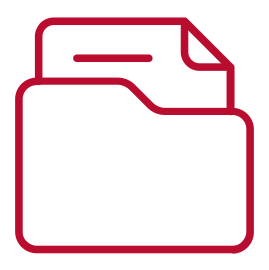The information below contains post-award guidance and resources, including implementing sponsored awards, reporting progress, and completing closeout requirements.
Award Receipt and Set Up
Once you receive a Notice of Award (NOA), it must be sent to: sponsoredprojectsforms@wustl.edu. Incoming subawards and contacts may also require JROC involvement.
- Awards are typically made to Washington University in St. Louis and not to the Principal Investigator (PI).
- For information about the intake process and what contract negotiators need from departments before they can process agreements, download the award document quick guide (PDF).
Compliance Requirements
After the award is accepted by the university, SPA confirms that compliance elements are in good standing, including:
- Protocols for use of humans, animals, biological materials, human embryonic stem cells, etc.
- If protocols are not yet approved at award set up, complete the Human Subjects or Animal Pending Approval Template.
- A current External Professional Activities Disclosure form
- Applicable compliance training is in good standing, including Financial Conflicts of Interest (FCOI) Education
DAs should assist the PI with monitoring these compliance components for all project members and to make sure they are complete. Additional information on Compliance Trainings can be found on the Trainings for Researchers webpage.
Failure to have up to date protocols and training completions can cause delays in starting the project.
Project Activation
Sometimes a PI is notified about receiving the award, but the university has not received the official NOA from the sponsor. In this case, the PI can request an account to be set up in Workday so that work can begin on the project. This is called a Project Activation (PA) Request.
PAs are sometimes referred to as at-risk requests because the department takes on the financial risk for any money spent that cannot be ultimately charged to the sponsor.
Effective 5/16/2025, departments must provide additional documentation. See the Updated Guidance for PAs document.
To request a PA:
- The DA completes a Project Activation Request form and obtains signatures from the PI and others as needed (e.g. Department Head and/or Dean).
- All PA requests are submitted to SPA at sponsoredprojectsforms@wustl.edu for review, approval, and processing.
Award Set Up
Notify SPA of received awards as soon as possible so the account can be established.
If multiple award lines are needed (e.g. subaward, cost share, or allocation), the DA must submit the Award Setup Template to SPA.
- More information on the Award Setup Template can be found on the Financial Services website.
After SPA has set up the account, the DA should verify that it is set up correctly. Resources:
Track the status of awards and requests submitted to SPA through Monday.com here.
After the account is set up, enter subrecipient information in the SUBSystem.
Cost Share & Allocation Requests
If there are project costs that will be covered by a university account, submit a Cost Share Request form to SPA. Visit the Financial Services’ Cost Sharing webpage to view what qualifies as valid cost sharing expenses.
If multiple award lines are required for a project (e.g. outgoing subaward, collaborator in another department, off campus), submit an Allocation Request form to SPA. To ensure payroll deadlines are met, submit this form at least 3 business days in advance of the deadline.
If increasing an already existing allocation, attach the Allocation Request form to the budget amendment.
Administrative Cost Exception
If administrative costs are anticipated on a project, submit an Administrative Cost Exception (ACE) form to SPA.
- This form should justify and document exceptions to the Administrative Cost Policy and allow for spending on Personnel and Non-Personnel categories. For a list of Non-Personnel spend restrictions and categories, see the SPA Spend Restrictions list, or visit the Unallowable Costs page.
- SPA will review the justification in the ACE form and make the final determination of whether the costs are considered allowable or unallowable as direct costs and should be charged as F&A.
Conduct and Manage Research
Expenditures
A single award almost always has several policies that govern expenditures. A major aspect of project management is understanding sponsor and university policies, and then carrying out all activities required under the policies.
- The Sponsored Expenditures Guidelines provide guidance on appropriate budgeting and expenditures of federal and non-federal sponsored funds.
- Charges must be applied to the appropriate award. It is unallowable to charge an expenditure to an unrelated award.
- The Business Expense Policy outlines policies and guidelines for business expenses, including travel related expenses.
- For additional guidelines while traveling on sponsored funds, see the Travel on Sponsored Funds webpage.
- The Uniform Guidance (UG) outlines unallowable costs (certain types of costs cannot be charged, directly or indirectly, to federally funded sponsored agreements).
If you have conflicting guidance, see the Award Oversight webpage.
DAs have a responsibility to meet with PIs at least quarterly to monitor award expenditures, account balances, overdrafts, and effort considerations.
Workday Resources:
Responsibilities
PIs and DAs have ongoing responsibilities for award management, including:
- Submitting required reports to the sponsor, such as technical reports, publications, inventions and patents, equipment, and financial reports. Check sponsor requirements to determine required reports and their frequency.
- Effort Reporting
- Throughout the project, all personnel that receive wages from a grant must complete effort certification twice per year.
- During this process, each person verifies that the effort level reasonably matches the actual work performed on that award.
- The PI is responsible for ensuring that allocations are accurate.
- The Effort Reporting Policy and Training webpages provide detailed information.
- Monitoring Compliance Training
- Following the Data Management and Sharing Plan and other sponsor requirements.
- Monitoring subrecipients to ensure research is conducted in compliance with applicable laws, regulations, and the research agreement. Subrecipient monitoring is required by the UG.
- Training on subrecipient monitoring is available on the STAR Training & Events webpage.
Award Closeout
No Cost Extension (NCE): If the PI needs more time to complete the project, some sponsors allow a No Cost Extension (NCE).
SPA and the department administrator are responsible for the financial closeout of sponsored agreements.
Sponsors have programmatic and financial closeout requirements.
DAs, PIs, and SPA are responsible for completing closeout tasks in accordance with the timeframe listed in the NOA. These tasks generally include:
- Filing final reports (financial, technical, equipment, etc.)
- Closing transactions
- Gathering final invoices from subawardees
- Submitting final invoice to the sponsor
- Submitting a Final Invention Statement (FIS) via eRA Commons
Expenditures
There may be additional restrictions and documentation requirements for spending near the award’s end date. Purchases made in last 90 days may require additional justification.
Expenses cannot be charged to an award just because there is an available balance. Expenditures must benefit the scientific goals of the project. The PI cannot purchase an item that a project does not need only to use remaining funds.
Monitor account and supply balances. Sponsors may have requirements for large excess of supplies.
Documentation
It is required to retain all documentation including sourcing, expenses, transactions, reports, etc. in accordance with the Record Management Policy.
Most documents must be kept for 4 years, but there may be longer periods for certain items. Departments may also have extended record retention requirements.
More information on research data record retention requirements can be found here.
Helpful Links
- For awards under expanded authority, reference the FDP Prior Approval Matrix and Prior Approval Letter Matrix (PDF) to determine sponsor prior approval requirements.
- The Faculty Financial Reporting Dashboard (FFR) 2.0 in Workday is one of the primary tools available to faculty to complete required financial oversight.
- The PI Departure Checklist offers guidance when PIs are preparing to leave the university.
- The Institutional Data and Budget Quick Reference page offers a list of frequently requested institutional data.
- WashU’s Federally Negotiated Facilities and Administrative (F&A) Rate Agreement & Fringe Benefit Rate
- Track Award Set Up and SPA Requests
- Federal Grant Funding Process
- Award Oversight
- Guidance for Avoiding Misrepresentation in Grant Applications and RPPRs





